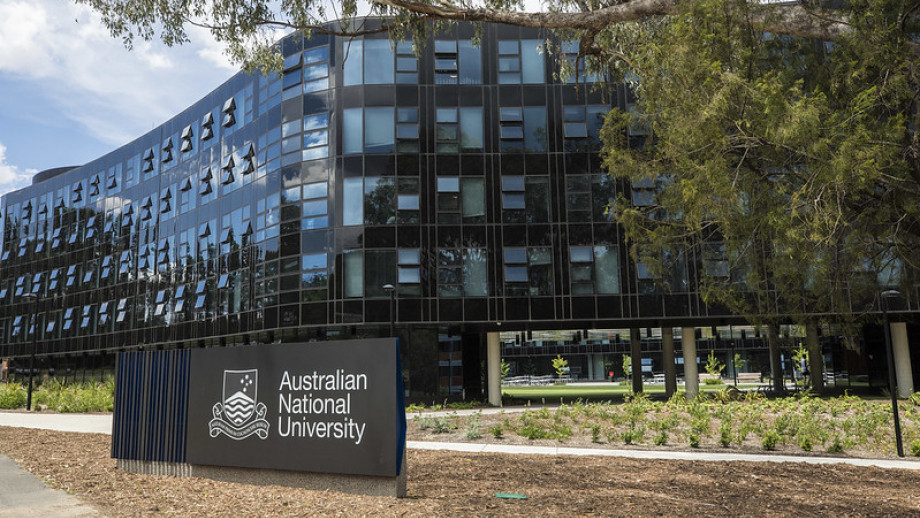
In this article, we will provide you with everything you need to know about the pathway on how to be a Lawyer in Australia including entry requirements, difference between a solicitor and barrister and which universities you can consider to study Law programme.
What is Law?

The study of law is the study of a system where a framework of rules is created and enforced through governmental or social institutions, varying from institutions or countries to regulate behaviour and ensure a fair, safe and equal world.
Lawyers generally provide legal advice to clients (individuals or organizations) when legal advice or assistance is required. Tasks and duties done by lawyers include: conducting research on the case, arranging witnesses, preparing and reviewing contracts, drawing up claims, acting as executor of will and representing clients in court (just to name a few)!
Different Types of Law

Types of Law | Specialization |
Criminal Law | Finding and punishing individuals who have broken the law – uncover the true perpetrator of a crime and bring justice to the victim of that crime |
Corporate Law | Ensuring businesses adhere to the set local and federal regulations in their operations |
International Law | Governs the interactions between different countries in ensuring safety of citizens |
Commercial Law | Deals with commerce, trade and consumer transactions, including bankruptcy, contracts, mortgages, real estate |
Family Law | Handles family relationships including divorce, child custody, adoption, child abuse or domestic violence |
Constitutional Law | Legal proceedings related to upholding or interesting the constitution of the country including civil rights and freedom of speech |
Labour Law | Focuses on relationships between employers and employees including ensuring employees are not being exploited, governing collective bargaining and benefits dispute |
Intellectual property law | Protects creators from copyright infringement including intangible creative works that are protected by copyrights or trademarks |
Steps to Become a Practicing Lawyer in Australia

To become a Lawyer in Australia you will need to go through multiple steps:
1. Complete a Bachelor of Law (LLB) or Juris Doctor (JD)
To become a practicing lawyer, you would need to undertake either a Bachelor of Law (LLB) or Juris Doctor (JD). LLB is suitable for students who do not already possess a degree whilst a JD is suitable for students who already have a degree in another discipline. Typically, both of these courses take 4-5 years to complete.
2. Complete a Practical Legal Training (PLT)
Law graduates who wish to become certified lawyers need to undergo Practical Legal Training otherwise known as the ‘Graduate Diploma of Legal Practice’ assessed by the Legal Admissions Board varying by each state or territory in Australia. This qualification focuses on practical skills needed to become a lawyer and can be attained within a minimum of 6 months. Another alternative option would be through the Legal Practice Experience which is an 80 day supervised legal practice with an experienced lawyer.
3. Admission to Legal Practice
Application to the Law Admissions Authority at the state or territories of choice to practice is then applied by law graduates within 5 years of graduation.
4. Apply for Practicing Certificate from the local Law Society
Final step of transition to becoming a practicing lawyer is to complete an 18 to 24 months of supervised practice before the application to the Law Society of the state for Practising Certificate.
NOTE: Australia operates a system of Solicitors and Barristers. Once you have become a practising lawyer, you are able to decide if you want to remain as a Solicitor or move onto becoming a Barrister.
What is the difference between a Solicitor and Barristers?

Solicitor
A solicitor is a qualified legal practitioner that works out of court. Main responsibilities of solicitors include working directly with clients in providing legal advice, writing documents and contracts, negotiating with clients, conducting research and gathering evidence. Solicitors only represent their clients in court if necessary.
Barrister
A barrister generally focuses on litigation, which is the process of taking legal action. Main responsibility of the barrister is conducting court appearances to represent their clients. This includes presenting the case and representing and translating their client’s view into legal arguments.
It is important to note that in Australia, each state and territory acquires its own legal Bar authority where in order to become a Barrister, you need to gain entrance to the Bar Readers’ Course by taking the Bar exam and pass the course. It is important for you to understand that the pathway of becoming a lawyer upon graduation varies based on state or territories chosen. The process of becoming a lawyer typically requires a combination of 6-8 years of education and training. International students wishing to work as a Lawyer in Australia need to fulfil certain requirements to be eligible to apply for the ‘Temporary Graduate Visa’ upon completion of their education. Contact us for further assistance!
Average annual salary for law graduates varies significantly depending on your job position, country or state of practice along with other external factors. However, generally- An entry-level Lawyer can expect to earn an average annual salary of around A$58,158 while a lawyer of 2-4 years of experience can expect to earn an average annual salary of around A$65,309. Mid-level & experienced lawyers with 5-20 years of experience can expect to earn from a range of $98,741 to A$117,446.
General Entry Requirements to Study Law in Australia
Academic Requirements
Academic Entry | Minimum Score |
STPM | GPA of 2.7 |
Matriculation | GPA of 3.17 |
A-Levels | Total of 7 |
UEC | Total of 25 with top 5 subjects |
IB Diploma | 24 |
Australian Matriculation (ATAR) | ATAR of 65 |
Canadian Pre-University (CPU) | 65% |
*NOTE : Different universities have different entry requirements. Contact us for more information!
English Language Entry Requirements
Entry Level | Minimum Score |
IELTS | 7.5 |
TOEFL | 105 |
Pearson Test of English (PTE) | 76 |
*NOTE : Different universities have different entry requirements. Contact us for more information!
Top Universities to Study Law in Australia
#1 Australian National University (ANU)

Since 1946, ANU has taken the lead in expanding Australia’s knowledge of both its own culture and the wider world. The institution provides undergraduate and graduate students from all around Australia and the world with a broad range of degrees, including flexible double degrees, as well as the assistance of more than 3,000 academic and professional staff members.
A Bachelor of Laws (Honours) degree offers you a law degree that can lead to various professional opportunities in Australia and globally. The LLB programme focuses heavily on enhancing your research abilities through independent legal research projects. Completing the LLB (Hons) will earn you an honours degree, which can give you an edge when starting your career or pursuing further studies. It also fulfills the requirements for becoming a lawyer in Australia.
Programme name | Bachelor of Laws (Honours) |
Duration | 4 years |
Intake | February, July |
Indicative Fees (2024) | AU$192,132 |
#2 University of Technology Sydney (UTS)

The University of Technology Sydney, abbreviated as UTS, is an acclaimed public higher education learning institution in Australia with history traced back to 1870. UTS is ranked among the top 100 of universities worldwide, marking their academic prominence and global impact.
The Bachelor of Laws at UTS is highly regarded for its comprehensive approach to legal education. It’s designed to not only teach students the basics of law but also to develop crucial ‘soft’ skills like problem-solving, analytical thinking, and effective communication (both verbal and written). These skills are essential for success in a legal career. During the programme, students will delve into the Australian legal system, gaining a solid grasp of its workings, alongside learning key common law principles. Graduates will meet the necessary academic standards to become practicing lawyers in New South Wales.
Programme name | Bachelor of Laws |
Duration | 4 years |
Intake | February, July |
Indicative Fees (2024) | AU$182,016 |
#3 University of South Australia (UniSA)

The University of South Australia (UniSA) is a prominent institution located in Adelaide, South Australia. Renowned for its commitment to academic excellence and practical learning, UniSA offers a diverse range of programmes to students from around the world.
UniSA is known to be the top-ranked institution in South Australia for graduate careers in law. Aside from being accredited by the Legal Practitioners Education and Admission Council, the curriculum is shaped by world-class research in Law and covers the fundamental principles of the Australian legal system. Law students at UniSA have opportunity also experience with real-world legal practice through the student-run Legal Advice Clinic, which involves providing advice to clients under the supervision of a managing solicitor
Programme name | Bachelor of Laws (Honours) |
Duration | 4 years |
Intake | February, July |
Indicative Fees (2024) | AU$144,400 |
#4 Griffith University

Griffith University is a leading higher education institution devoted to fostering remarkable graduates through exceptional research and excellent teaching. Griffith is consistently ranked among the top 2 percent of universities worldwide, holding core principles covering excellence, ethical behaviour, and engagement.
When you study law at Griffith, you’ll be part of a law school that is deeply committed to social justice. Here, you’ll learn from award-winning teachers and researchers who are not afraid to challenge the way things are done and are constantly creating new legal knowledge, models, and processes. Griffith University takes pride in being the top-ranked Queensland university for Law & Criminology according to the 2023 Shanghai Global Rankings of Academic Subjects. Throughout your studies, you’ll also build a solid understanding of various aspects of law and legal practice.
| Programme name | Bachelor of Laws (Honours) |
|---|---|
| Duration | 4 years |
| Intake | March, July |
| Indicative Fees (2024) | AU$142,000 |
#5 Western Sydney University

The Western Sydney University was initiated in the year 1989 under the name the University of Western Sydney, is committed to being a higher education institution which is distinctively student-centred with life-enriching educational opportunities. Students will be entitled to student support and regular vetted curriculums.
Western Sydney University Bachelor of Laws programme (Non-Graduate Entry) sets you up to become an Australian lawyer. You’ll dive into hands-on problem-solving and real-life case studies, learning alongside others in person. Plus, you’ll tackle practical assessments that really sharpen your skills and knowledge. It’s all about preparing you for the real world of law practice.
Programme name | Bachelor of Laws (Non-graduate entry) |
Duration | March, July |
Intake | 4 Years |
Indicative Fees (2024) | AU$135,840 |
Recommended Articles to Read
About the Author

Raveena Rakni Suresh Raj
Leo baby & psych major

